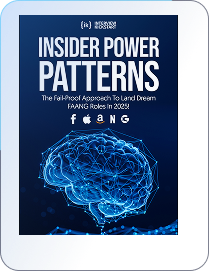PL/SQL is a popular procedural language created by Oracle, providing iteration and decision-making functionalities. As more and more companies push towards implementing digital transformation strategies and becoming data-driven organizations, the demand for PL/SQL Developers has risen significantly. This is a great time to advance your career in this field. In this article, we go through some of the most frequently asked PL/SQL interview questions.
In this article, we will cover in brief the roles and responsibilities of PL/SQL developers and the key topics that you should prepare for acing the interview. Further, we also present the common basic and advanced PL/SQL interview questions and answers.

A PL/SQL developer designs and manages network interfaces of PL/SQL packages based on core specifications and business requirements. For this reason, PL/SQL developers need to possess in-depth knowledge of creating efficient databases and applications featuring optimized infrastructure and navigation options.
PL/SQL developers are also responsible for conducting multiple quality assessments to ensure stable systems and the development of instruction manuals before the final output is delivered. Besides this, their role involves enhancing existing databases and applications, foreseeing possible downtime and delay, and resolving them.
To become a PL/SQL Developer in a FAANG company, you need to clear multiple PL/SQL interview rounds. Nail your interview by brushing up on PL/SQL interview questions, technical knowledge, and interview skills.
If you want to crack the PL/SQL interview, it is crucial to brush your basic concepts. The top PL/SQL interview questions are mostly based on the following topics:
Practicing some mock interview questions should be an important step in your preparation. Let’s look at the most frequently asked PL/SQL interview questions and answers.
PL/SQL, short for Procedural Language extension to Structured Query Language, was developed by Oracle Corporation and allows developers to write complex interactions and queries using procedures, control structures such as branching and also includes functions and modules. It has a solid SQL integration system, supporting static and dynamic SQL.
Oracle came up with PL/SQL to make up for the shortcomings of SQL. PL/SQL, being an extension of SQL, is a procedural programming language, so it is great for writing complex interactions.
Here are some of the most important characteristics of PL/SQL:
PL/SQL has two types of data types:

The basic structure in PL/SQL is BLOCK. Every PL/SQL has an SQL and a PL/SQL statement that forms a PL/SQL block. Each PL/SQL block will contain three parts:

Exceptions help in handling errors in PL/SQL. There are two types of exceptions in PL/SQL:

PL/SQL does not support data definition commands such as CREATE.
A stored function does not return a value, but a function will return a value.
In PL/SQL, an error condition is called an exception. Design faults, coding mistakes, hardware failures, and so on can cause run-time errors. Exception handling in PL/SQL allows your program to continue operating in the presence of errors.
When an error occurs, an exception is raised, stopping normal execution. The control then transfers to the exception-handling part of your PL/SQL block or subprogram.
An index helps access data blocks in the table faster and more efficiently.
The following are some of the key exceptions in PL/SQL:
Here are some popular Oracle PL/SQL interview questions that you should practice:
12. Name the components of the physical database structure of an Oracle database.
13. Describe a tablespace.
14. Name the components of the logical database structure in an Oracle database.
15. Discuss a SYSTEM tablespace.
16. What does each number show Oracle version 9.3.0.5.0?
17. How are databases, data files, and tablespace?
18. Differentiate between hot and cold backup in Oracle.
19. Name all the Oracle database objects.
20. Differentiate between pre-query and pre-select.
21. Name the types of joins used in writing SUBQUERIES.
22. Name the types of synonyms.
23. Describe logical backup in Oracle?
24. What is Redo Log file mirroring?
25. How is SHOW used in the IMP command?
Recommended Reading: Oracle SQL Interview Questions.
In this section, we’ve listed some basic PL/SQL interview questions asked to freshers or junior developers. Let’s go through them:
26. Tell us one way to compile a PL/SQL code.
27. Name some data types in PL/SQL.
28. Differentiate between %ROWTYPE and %TYPE.
29. What are some schema objects that you can create using PL/SQL?
30. What are predefined exceptions?
31. Name some packages PL/SQL Developers can use.
32. What are Character Functions?
33. Where can you use keywords such as USER and SYSDATE?
34. Describe a stored procedure.
35. What are PL/SQL Cursors?
36. What does the cursor attribute SQL%ROWCOUNT give?
37. Differentiate between implicit and explicit cursors.
38. What is a PL/SQL package?
39. What command will you use to delete a package?
40. Name two different parts of a PL/SQL package.
41. How will you execute a stored procedure?
Also read:Â 40+ Oracle Technical Interview Questions
The questions that senior or experienced developers have to solve in their tech interviews are of an advanced level. The interviewers expect you to be thorough with your basic PL/SQL concepts. Listed below are some advanced-level PL/SQL interview questions:
42. Discuss SQLERRM and SQLCODE.
43. Describe IN OUT parameter.
44. Name some predefined exceptions in PL/SQL.
45. How will you restrict the string length in PL/SQL?
46. What is the use of a UTL_FILE package?
47. What does the error ORA-03113 mean?
48. Describe the different cursor types.
49. Differentiate between the execution of triggers and stored procedures.
50. What is the difference between runtime errors and syntax?
51. Discuss actual and formal parameters?
52. Differentiate between mutating table and constraining table?
53. List the uses of MERGE.
54. Discuss the concept of Raise_application_error.
55. Does SQL*Plus have a PL/SQL Engine?
56. Explain BTITLE and TTITLE.
57. What is between subprograms and anonymous blocks?
58. What is the difference between PGA and SGA?
59. What is polymorphism in PL/SQL?
60. What is the role of a hierarchical profiler?
61. Which function will you use to transfer a PL/SQL table log to a database table?
62. What is the role of PLVrb and PLVcmt in PL/SQL?
63. What is a DML statement?
64. Describe a database server.
65. What is ‘user defined’ in PL/SQL?
66. Let’s talk about PL/SQL programs.
67. What are multiple rows in PL/SQL?
68. Explain implicit cursors in PL/SQL.
69. What is a mutating table?
70. How will you get returns on more than one row?
71. What are anonymous blocks?
72. Discuss package specifications.
73. What is a database trigger?
74. What is an active set?
75. How will you know if a cursor is opened?
76. Discuss functions and procedures in PL/SQL
Recommended Reading: 50+ SQL Interview Questions and Tips on How to Crack Them
The following are some of the scenario-based PL/SQL interview questions for experienced developers:
77. Which Query will you use to find the third-highest salary for an employee?
78. Which Query will you use to find the Nth Record from a table?
79. Finding and deleting duplicate rows.
80. Create a duplicate table.
81. How will you add email validation using only one Query?
82. How will you find a constraint name?
PL/SQL has a vast scope when it comes to learning and application. A thorough understanding of the fundamental concepts and practice with some PL/SQL interview questions will help you succeed in your technical interview.
It is time you nail your PL/SQL interview! Register for Interview Kickstart’s Interview Prep course today to learn how to take advantage of exclusive interview preparation courses and mock interviews with experts.
Interview Kickstart has helped over 17,000 engineers land coveted offers from FAANG and tier-1 companies. Our instructors are technical leads and hiring managers at FAANG and know what it takes to crack PL/SQL Developer interviews.
Q1. Is PL/SQL Coding?
PL/SQL is a crucial programming language embedded in the Oracle Database. The other two key languages are SQL and Java.
Q2. Are PL/SQL Developer Jobs in Demand?
PL/SQL may not be growing at the same pace as other extensions and programming languages, but it has remained steady over the last decade. Since it is used in the Oracle database, which is a fixture of enterprise systems worldwide, PL/SQL is here to stay. Since there is a scarcity of PL/SQL programmers, the role will likely see a salary increase soon.
Q3. What is the Salary of a PL/SQL Developer?
According to Talent.com, the average salary of an Oracle PL/SQL Developer salary in the United States is $115,050 per year or $55.31 per hour. Entry-level positions pay $103,350 per year, while experienced workers earn up to $136,500 annually.
Q4. Which Companies use PL/SQL?
A. Some of the major companies that use PL/SQL are Acxiom, ECS Federal Inc., Edward Jones, AT&T, Citi, Change Healthcare, QA Limited, The American Red Cross, and more.
Q5. What Skills Help Oracle PL SQL Developers Find Jobs?
A. Here are some skills you should have to become a PL/SQL Developer: PL/SQL, SQL, Oracle, Performance Tuning, Shell Scripting, Data Modeling, Data Warehouse, SDLC, Relational Databases, Databases, Database Development, .NET, Collaborative skills, Adaptability, Verbal and written communication, Logical thinking, Attention to detail, Problem-solving skills, Accountability and Time management.
Related reads:
Attend our free webinar to amp up your career and get the salary you deserve.

693+ FAANG insiders created a system so you don’t have to guess anymore!

100% Free — No credit card needed.

Time Zone:






Get your enrollment process started by registering for a Pre-enrollment Webinar with one of our Founders.

The 11 Neural “Power Patterns” For Solving Any FAANG Interview Problem 12.5X Faster Than 99.8% OF Applicants
The 2 “Magic Questions” That Reveal Whether You’re Good Enough To Receive A Lucrative Big Tech Offer
The “Instant Income Multiplier” That 2-3X’s Your Current Tech Salary

The 11 Neural “Power Patterns” For Solving Any FAANG Interview Problem 12.5X Faster Than 99.8% OF Applicants
The 2 “Magic Questions” That Reveal Whether You’re Good Enough To Receive A Lucrative Big Tech Offer
The “Instant Income Multiplier” That 2-3X’s Your Current Tech Salary
Just drop your name and email so we can send your Power Patterns PDF straight to your inbox. No Spam!
By sharing your contact details, you agree to our privacy policy.
Time Zone: Asia/Dhaka

We’ve sent the Power Patterns PDF to your inbox — it should arrive in the next 30 seconds.
📩 Can’t find it? Check your promotions or spam folder — and mark us as safe so you don’t miss future insights.
We’re hosting a private session where FAANG insiders walk through how they actually use these Power Patterns to crack interviews — and what sets top performers apart.
🎯 If you liked the PDF, you’ll love what we’re sharing next.
Time Zone:

